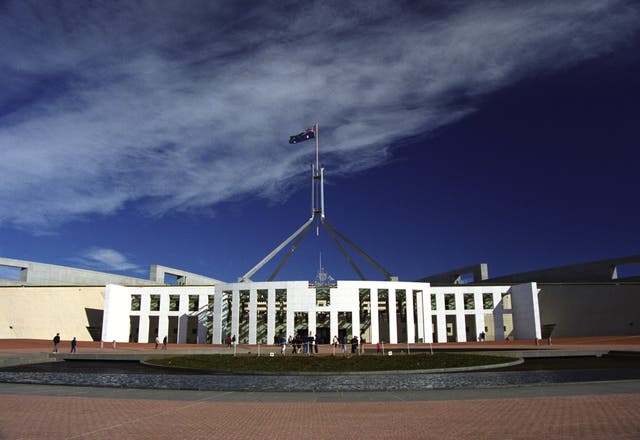Australian PM Malcolm Turnbull urges unity after defeating leadership challenge
Several ministers, including his challenger Peter Dutton, have quit the Cabinet.

Australia’s prime minister Malcolm Turnbull called on his government to unite behind him after he survived an internal leadership challenge.
But several ministers who backed the failed challenger offered their resignations in a move that widens the rift in government ranks.
His challenger, home affairs minister Peter Dutton, resigned from the Cabinet after the vote but the amount of support he gained surprised many people.
Mr Turnbull ruled out any retribution against ministers suspected of supporting Mr Dutton and said he had invited Mr Dutton to remain in the senior security portfolio.

“We know that disunity undermines the ability of any government to get its job done and unity is absolutely critical,” Mr Turnbull added.
But assistant minister to the prime minister James McGrath, minister for international development and the Pacific Concetta Fierravanti-Wells, and assistant treasurer Michael Sukkar confirmed within hours that they had offered their resignations after backing Mr Dutton.
“Our conservative base strongly feel that their voice has been eroded,” Ms Fierravanti-Wells wrote in a resignation letter to Mr Turnbull, a centrist leader.

Other ministers have also reportedly resigned or are planning to resign in a move that undermines Mr Turnbull’s hopes for his political survival.
It was not immediately clear whether Mr Turnbull will accept the resignations.
Mr Turnbull called the vote at a meeting of conservative Liberal Party politicians as speculation mounted about his support within the government, which is gearing up for a general election due early next year.
The government has trailed the opposition Labour Party in most opinion polls since the last election in 2016.
Mr Turnbull won by 48 votes to 35 with one abstention and one politician on sick leave.
Australia has gone through an extraordinary period of political instability since prime minister John Howard lost power in 2007 after more than 11 years in office.
Ousting Mr Turnbull would have been the sixth leadership change since then.
Next month, Mr Turnbull would become Australia’s longest-serving prime minister since Mr Howard, having held office for three years and four days.
Mr Dutton supporters say the former police drug squad detective could have amassed enough support to successfully challenge for the leadership if the vote had been held on Thursday before Parliament takes a two-week break and politicians will not gather again until September 10.
Mr Dutton later thanked his colleagues for their “considerable support” in the ballot.
“I believe that I was the best person to lead the Liberal Party to success at the next election,” Mr Dutton told reporters.
He said he respected the outcome of the ballot and fully supported Mr Turnbull.
He did not specifically rule out challenging the prime minister again.

Nick Economou, a political analyst at Monash University in Melbourne, believes politicians are abandoning Mr Turnbull because they fear he will lead them to a crushing defeat in the elections.
Mr Turnbull made a major concession to his opponents within his party on Monday by abandoning plans to legislate to limit greenhouse gas emissions.
The concession avoided having the most conservative government politicians voting against the legislation in Parliament, openly undermining his authority.
But former prime minister Tony Abbott, who was replaced by Mr Turnbull in a ballot of government politicians in 2015, advised Mr Turnbull in a statement on Tuesday that “unity has to be created and loyalty has to be earned. They can’t just be demanded”.





